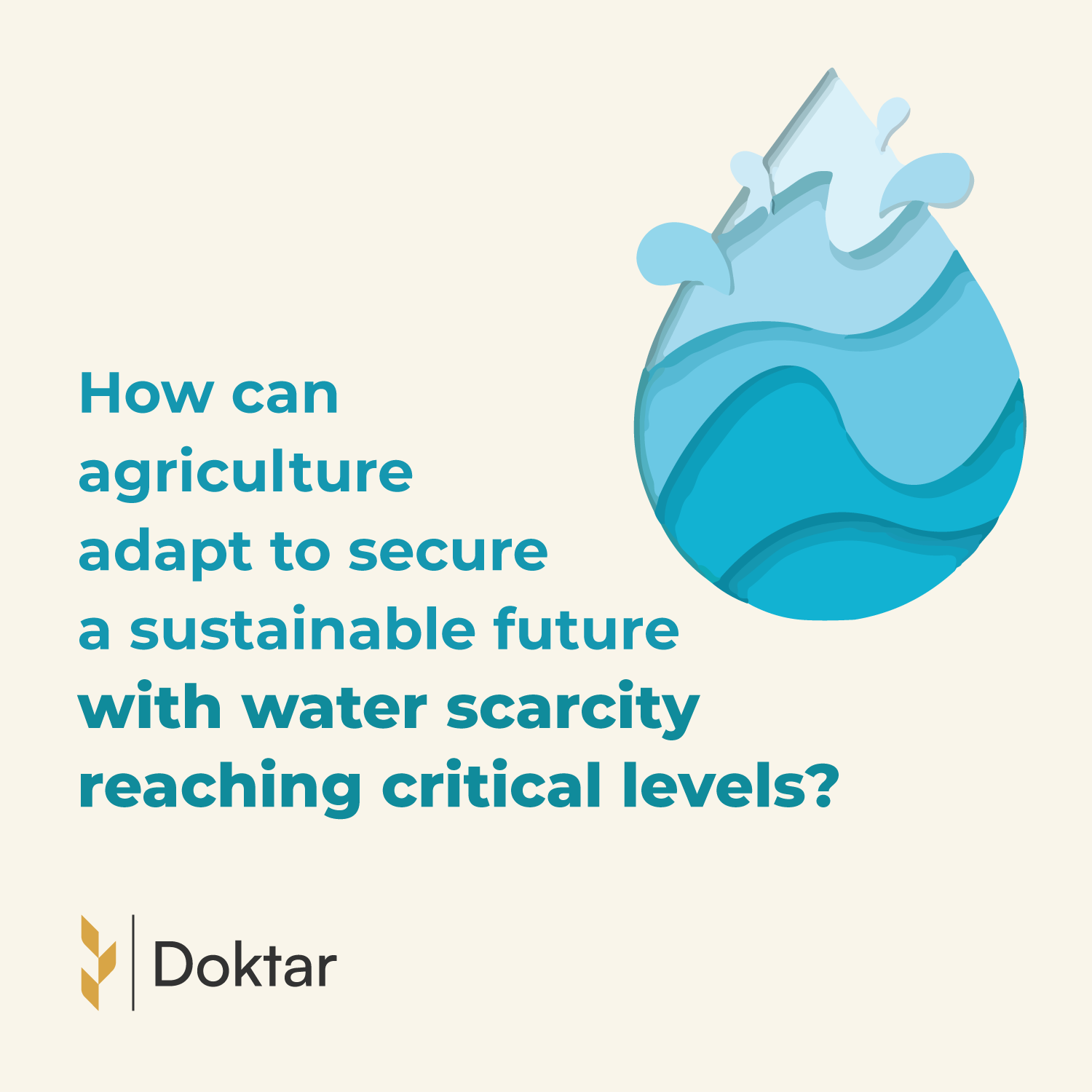

From fields to streams: How a water replenishment program is supporting net-zero goals
Doktar Technologies addresses agriculture's water challenges with innovative programs that leverage AI, IoT, and satellite monitoring for efficient irrigation, rainwater harvesting, and regenerative practices. Partnering with companies like Coca-Cola and Nestlé, Doktar helps achieve net-zero water goals while enhancing yields and farmer incomes, fostering sustainable and resilient agricultural systems.
Published on 20 December 2024
Water is the lifeblood of agriculture, accounting for nearly 70% of global freshwater withdrawals.¹
As climate change intensifies and water resources become scarcer, agriculture’s reliance on water demands innovative and actionable approaches to meet current and future needs. This necessity is particularly pressing for industries like the food and beverage sector, which depend heavily on agricultural resources and have set ambitious net-zero water goals across supply chains.
The global water crisis is a stark reminder of the urgent need for sustainable water management practices. Efficient and mindful water use directly supports food security, environmental health, and economic resilience. Industries that rely extensively on agricultural inputs, particularly large-scale FMCG companies, are under increasing pressure to manage their water footprint responsibly.
To address this critical need, Doktar Technologies has introduced its Water Replenishment and Watershed Improvement programs, designed to return the equivalent of water used to nature. Along with utilizing proprietary technology and structured methodologies, these programs build digital and financial literacy capacity to ensure long-term success.
Through collaborations with global giants such as Coca-Cola, Cargill, Danone, and Nestlé, Doktar has facilitated measurable progress in achieving corporate water sustainability goals. These partnerships are crucial in its mission to foster an ecosystem of sustainable agricultural practices extending beyond the farm by equipping stakeholders with the necessary tools and knowledge.
The goal is to contribute to agricultural efficiency and environmental sustainability while aligning with global companies' corporate water stewardship goals.
Agricultural water management has long been dominated by conventional irrigation techniques, many of which could be more efficient. Without integrating technology and science-backed strategies, large volumes of water are lost to evaporation, runoff, and over-irrigation. Doktar’s programs challenge these outdated practices by introducing precision-oriented and scalable tools and methodologies, ensuring every drop of water is accounted for and used effectively.
Doktar’s approach to water management is not just effective, it is innovative. It integrates localized insights with cutting-edge technology. Local climate, soil health, and crop-specific requirements are combined with tools like the FlowMeter and satellite monitoring systems to create highly tailored solutions for each region. This optimizes water usage and enables adaptability to different climates and geographies.
Doktar’s Water Replenishment Framework adopts a comprehensive and strategic approach to water conservation. It is structured around three core pillars, each addressing critical aspects of sustainable water management:
- Reducing water loss through regenerative agriculture,
- Reducing water consumption via informed irrigation,
- Capturing water through rainwater harvesting.
Together, these strategies enhance water availability for crops, strengthen soil health, and increase agricultural resilience to climate variability. In addition, Doktar’s commitment to capacity building ensures that these programs extend beyond material conservation to promote long-term benefits for farmers' livelihoods.
By reducing water loss, optimizing water consumption, and supplementing water resources, Doktar’s program not only conserves water but also improves crop outcomes, leading to increased yields and amended farmer incomes.
Reducing water loss
Reducing water loss is at the core of Doktar’s sustainable water management programs and focuses on three key pillars:
- Enhancing water retention Doktar promotes regenerative practices like cover cropping and reduced tillage to improve soil health, water retention, and erosion resistance. These methods naturally enhance fertility, reducing reliance on external inputs and supporting long-term soil productivity.
- Optimizing water consumption Using its advanced IoT sensors and satellite technologies, Doktar enables data-driven irrigation scheduling. By monitoring real-time soil conditions, crop water needs, and weather patterns, water is applied precisely where and when it is needed. This precision conserves significant volumes of water while ensuring optimal crop health and productivity.
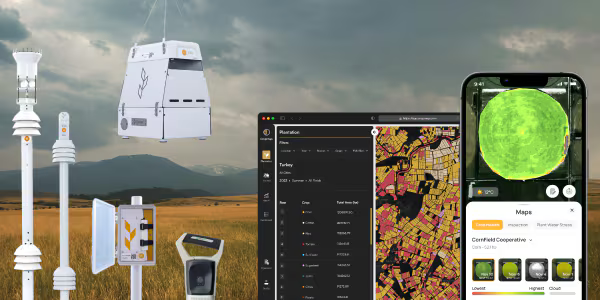
Doktar's Products
- Supplementing water resources To combat water scarcity, Doktar integrates rainwater harvesting systems. Artificial reservoirs store rainwater, providing essential backup supplies during dry periods. These systems are monitored to ensure efficient utilization and transparent reporting. By creating water buffers, Doktar safeguards crop yields and stabilizes ecosystems in water-scarce regions.
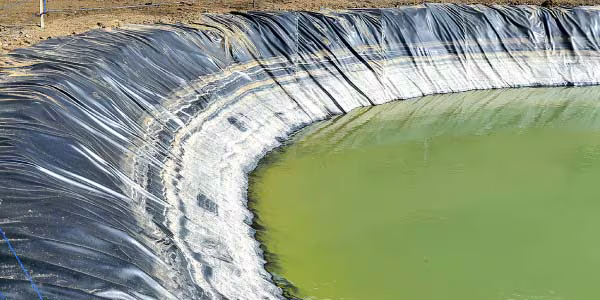
The Volumetric Water Benefit Accounting (VWBA) methodology is employed to quantify the impact of these programs. This standardized accounting approach aligns Doktar’s framework with globally recognized water stewardship principles, ensuring transparency and consistency in environmental reporting.
By following VWBA standards, Doktar provides a measurable assessment of water savings and replenishment. It is a critical tool for corporate partners such as Coca-Cola, Nestlé, and Danone, who prioritize responsible water management within their agricultural supply chains. This emphasis on measurable outcomes assures stakeholders of the tangible benefits of adopting Doktar’s technologies and practices.
Technology-driven solutions
These initiatives exemplify how technology-driven water management can transform agriculture into a sustainable and resilient sector by reducing water scarcity. For food and beverage companies and other agricultural stakeholders, adopting the Water Replenishment Program can help achieve net-zero water goals, align with sustainability initiatives, and enhance their environmental credibility. Importantly, Doktar’s program is scalable and can be adapted to different agricultural settings, making it a viable solution for addressing water scarcity on a larger scale.
Integrating artificial intelligence, IoT, and predictive modeling in Doktar’s programs ensures precision and allows stakeholders to visualize long-term water savings. These tools deliver customized insights tailored to each project, empowering farmers with actionable recommendations.
These projects have effectively addressed immediate water needs while creating a sustainable model for long-term agrarian resilience. The combination of rainwater harvesting and informed irrigation has led to measurable increases in water availability, reduced groundwater extraction, and improved crop outcomes in these regions.
Farmers have reported improved yields and a deeper understanding of how their practices impact broader water cycles. These success stories underscore the importance of combining technological innovation with farmer education to create lasting change.
As the demand for sustainable water practices grows more urgent, Doktar invites companies, investors, and individuals committed to advancing agricultural sustainability to collaborate on watershed improvement and water replenishment initiatives. Partnership is essential in shaping a future where farming systems respect natural resources and are resilient to climate challenges.
Investing in sustainable water management can create transformative solutions that address today’s crisis while building a sustainable future. Companies can meet their water stewardship goals and contribute to lasting environmental and social impact by joining forces. The time to act is now – let’s replenish, preserve, and protect our water resources for generations to come.
Find out more about reducing water loss with technology-driven solutions here.
* This essay has been published on Agtechnavigator
References
1. Unesco. Water for Prosperity and Peace.
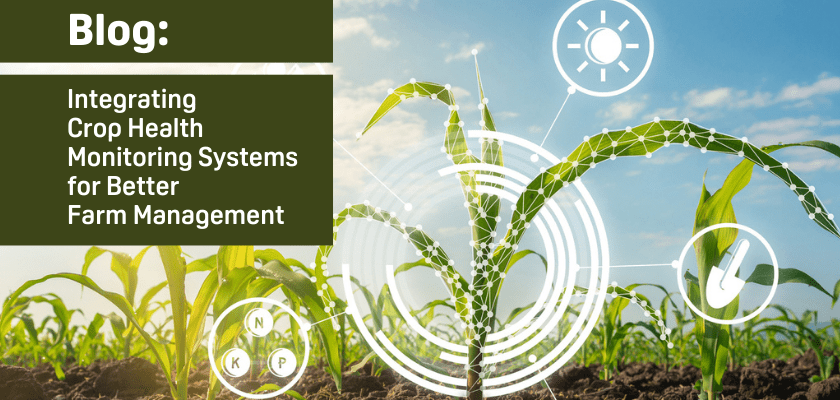
Integrating Crop Health Monitoring Systems for Better Farm Management
Crop health monitoring systems revolutionize modern agriculture by enabling real-time insights into plant health, reducing losses, and promoting sustainability. Tools like Doktar’s CropMap and Orbit integrate advanced technologies, empowering farmers with data-driven decisions. By enhancing efficiency and sustainability, these systems are essential for future-proofing agricultural operations.
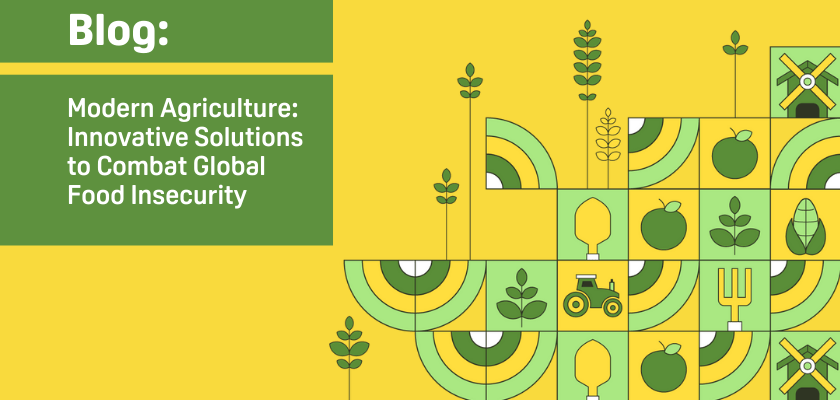
Modern Agriculture: Innovative Solutions to Combat Global Food Insecurity
Modern agriculture combats global food insecurity with precision agriculture, sustainable practices, and biotechnology. Tools like IoT, automation, and crop innovations optimize resource use, enhance resilience, and ensure stable food supplies. By integrating smart technologies, agribusinesses address challenges like climate change and resource scarcity, paving the way for a sustainable food future.
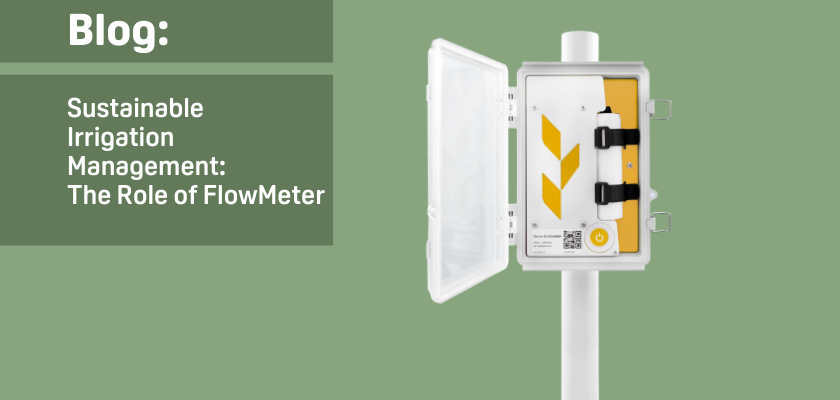
Sustainable Irrigation Management: The Role of FlowMeter
Flow meters transform irrigation by enabling precise water measurement, reducing waste, and optimizing crop yields. Tools like Doktar’s FlowMeter empower farmers to enhance water-use efficiency, conserve resources, and lower costs. By integrating flow meters into modern farming, agribusinesses achieve sustainable irrigation solutions, address environmental challenges, and ensure long-term agricultural resilience.
